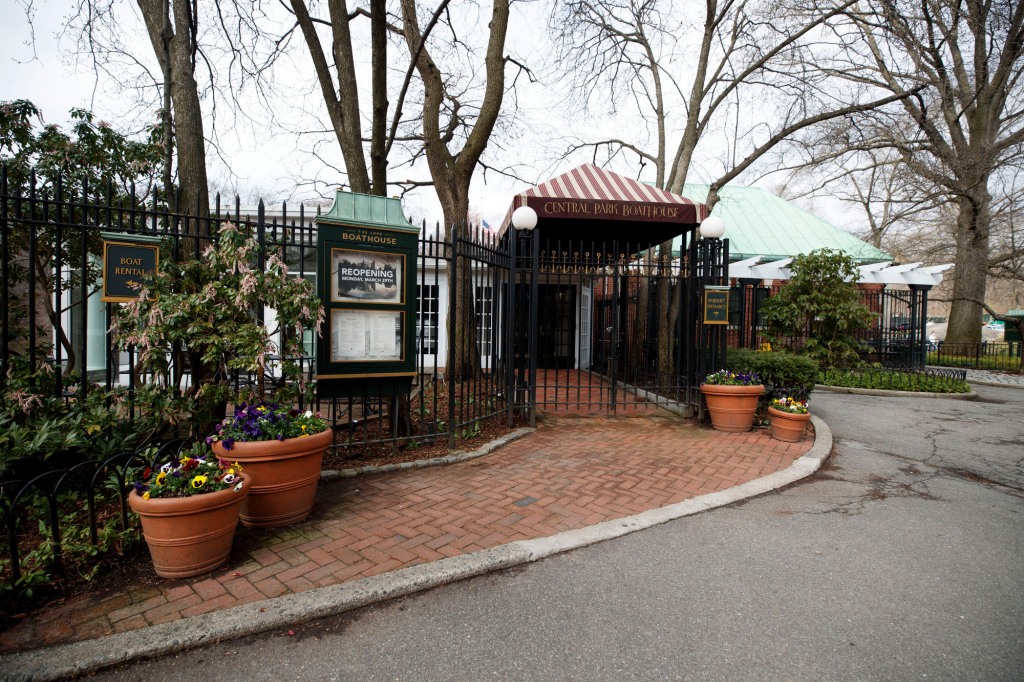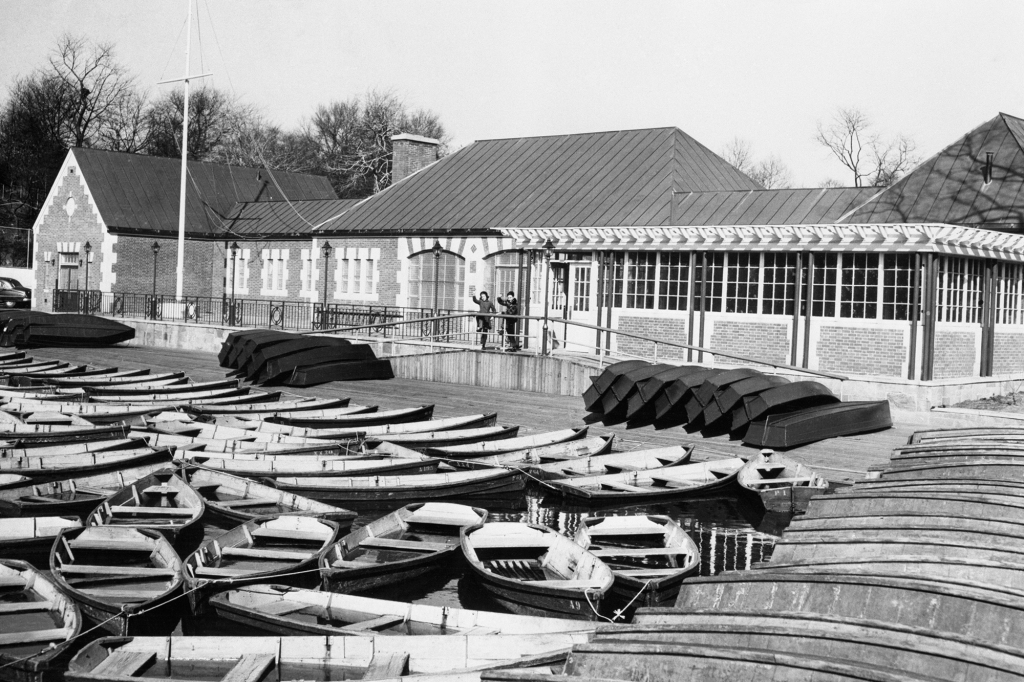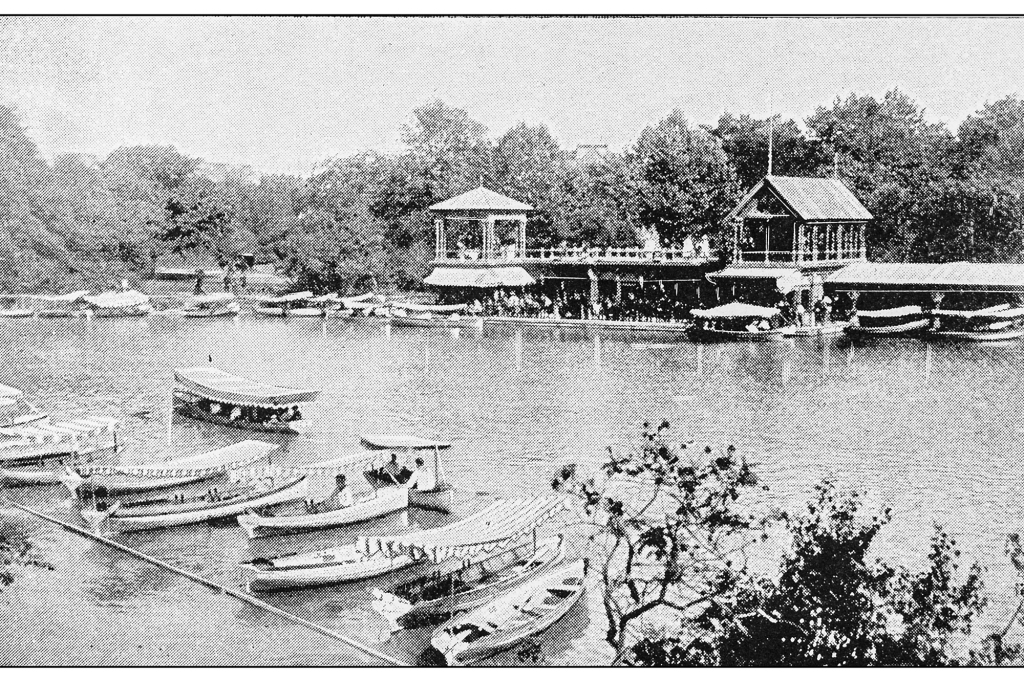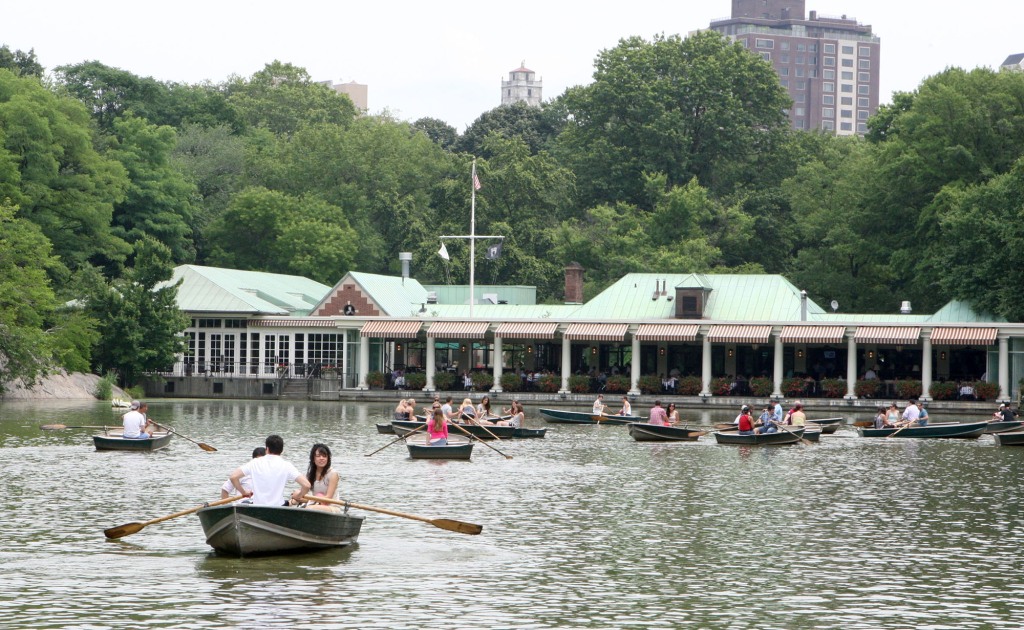The Central Park Boathouse is closing — will it reopen soon?
Save the Boathouse! But how?
Operator Dean Poll is closing the Central Park restaurant on Oct. 16. The Big Apple landmark will shutter due to skyrocketing costs, according to Poll.
However you plate it, this is bad news for the city. A darkened Boathouse would leave a heartbreaking hole in the park at a time when New York’s green lung needs all the wholesome, law-abiding human traffic it can handle.
Last rebuilt in the 1950s, where the 1870s Calvert Vaux original once stood, the Boathouse, magically set on the east bank of Central Park’s picturesque lake, is ignored by some New Yorkers who foolishly mistake it for a tourist trap.
Friends I’ve taken there will invariably say, “I can’t believe I never came here,” especially after their surprise at how good their meals were.
There’s a lot to love about the place. The view of the lake and the towers of Central Park West through wraparound, accordion-style windows that open from floor to ceiling can’t be beat. No other waterside venue in the five boroughs offers the romantic sight of a Venetian gondola going by.
The landmarked Boathouse never had the boldface cachet of the much larger Tavern on the Green, which historically hosted glamorous Broadway and Hollywood parties and weddings for the ultrarich, and continues to do so today.
But the Boathouse has long been an uplifting dining experience for those in the know. The under-10-minute, scenic stroll through the park from the corner of Fifth Avenue and East 72nd Street leads to the city’s most enchanted setting to enjoy a strong, modern American menu. Choices such as grilled salmon, crab cakes and seasonal salads are the equals of any comparably priced dishes on the Upper East Side and Upper West Side.
Prices are fair by 2022 standards. Potent cocktails are just $14. It’s puzzling that Poll, who complained of escalating operating costs, didn’t pass the hikes on to customers. Too late now — Poll, who notably saved Gallaghers Steakhouse from closure in 2013, is packing up and leaving, representing a considerable loss to New York’s post-pandemic restaurant culture.
Salvation, however, could be in sight — sooner rather than later, if city officials rise to the occasion.


The Parks Department is definitely taking the shutdown seriously — it plans to skip its usual, snail’s-pace “request for proposals” procedure to issue a new license in favor of a speedier process where wannabe operators vie to assume the existing contract.
It’s a rare, smart step from the city bureaucracy, possibly sparked by The Post’s recent warning that the standard RFP rigmarole could leave the property shuttered for years.
Parks will look over applications and gamble on who’s best able to run the place as well as Poll has, while paying the city $1.7 million a year for the new license or 7.2% of annual revenue, whichever is greater.
Sources said a number of unnamed restaurateurs have already come forward. But there’s another big wrinkle: The labor agreement that Poll had in place with union Local 6 of the Hotel Trades Council.


Parks Department reps told us, “Any agreement between the union and a future operator would be based upon negotiations between the relevant parties.”
But negotiate what? The union expects Poll’s successor to swallow the contract’s existing terms.
“We don’t expect to have any problem with that,” a Local 6 official told us.
Translation: Don’t even think about it.
Sources said the terms call for a 3% annual salary hike for all 163 employees. It also requires the operator to pay kitchen employees five hours of guaranteed overtime a week from April to October, whether it’s needed or not.
These aren’t new demands that the union is making. The contract hasn’t changed since the last time it was updated in Nov. 2015. However, the built-in pay increases, as well as required upward adjustments for inflation, might scare off rescuers at a time when food and other nonlabor costs are leaping over the moon.

With Poll on his way out and the union unlikely to budge — at least so far — the heat’s on the city to keep the process moving forward.
That could mean agreeing to a cheaper price for the license, at least until inflation decreases.
The city, which has an annual budget of more than $101 billion this year, says it wants to “identify and install a new operator as quickly as possible.”
If Mayor Eric Adams means to keep the Boathouse afloat, taking a few bucks less isn’t going to sink the Big Apple.
Read the full article Here


